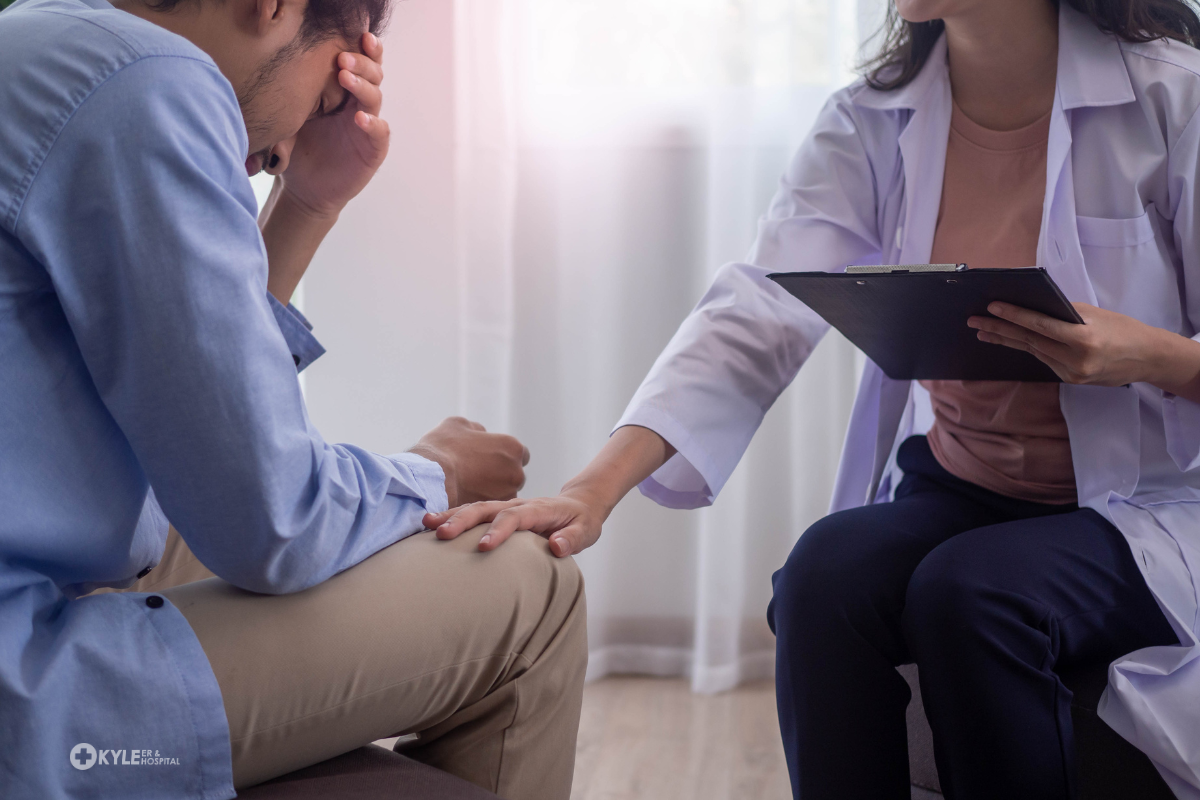When someone is struggling with addiction to alcohol or drugs, the idea of detoxing—essentially, ridding the body of harmful substances—can seem daunting. For some, doing it alone might seem appealing, either because of embarrassment or a desire to be self-reliant. However, detoxing without medical supervision can be dangerous and sometimes even life-threatening. In contrast, medical detox is safer than going cold turkey, providing a structured environment for individuals to start their recovery journey
What Does Detoxing “Cold Turkey” Mean?
“Cold turkey” refers to the abrupt cessation of drug or alcohol use, often without any form of medical assistance. While the term is commonly used, it doesn’t adequately convey the risks involved. When someone decides to quit drinking or using drugs, they can experience a variety of withdrawal symptoms. These symptoms can range from mild discomforts to severe, life-threatening conditions. The severity and intensity of symptoms is influenced by the type of substance, the duration and amount of use, and the individual’s health.
The Dangers of Unsupervised Detox
While the body can eventually rid itself of drugs or alcohol without outside intervention, detoxing cold turkey is fraught with risks. Here are some of the primary dangers associated with unsupervised detox:
- Severe Withdrawal Symptoms
Withdrawal symptoms can range from unpleasant to potentially deadly. Some of the more common withdrawal symptoms include:
- Sweating, shaking, and tremors
- Anxiety, depression, and irritability
- Nausea, vomiting, and diarrhea
- Fatigue, headaches, and muscle pain
While these symptoms can be incredibly uncomfortable, some withdrawal symptoms can be far more dangerous. For example, alcohol withdrawal can lead to delirium tremens (DTs), a condition that involves confusion, hallucinations, and seizures. In extreme cases, DTs can be fatal if not properly managed.
Similarly, opioid withdrawal can cause excruciating physical discomfort, including intense cravings and muscle pain. Without professional help, it can be difficult for individuals to withstand the full force of these symptoms. This can lead them to relapse as a means of alleviating the discomfort.
- Risk of Seizures
One of the most dangerous risks associated with unsupervised detox is seizures, which can occur during withdrawal from alcohol, benzodiazepines (such as Xanax or Valium), and other substances. These seizures can cause severe physical harm, and in some cases, they can be fatal. Medical professionals have the training and resources to manage the risk of seizures, ensuring that the individual is safe during the withdrawal process.
- Dehydration and Electrolyte Imbalance
Withdrawal symptoms such as vomiting, diarrhea, and excessive sweating can lead to dehydration and imbalances in the body’s essential electrolytes. If left unchecked, dehydration and electrolyte imbalance can result in organ failure, cardiac arrhythmias (irregular heartbeats), and other life-threatening complications.
- Relapse Due to Intense Discomfort
For many people going through detox alone, the physical discomfort can be so overwhelming that they end up using again to make the symptoms go away. This is especially true when withdrawal symptoms reach their peak intensity in the first few days. Without a medical team to provide support, medication, and physical care, the temptation to relapse is often too strong for individuals to resist.
- Unpredictability
The detox process is different for everyone. While one person may experience mild discomfort during withdrawal, another may face severe symptoms. Factors like the individual’s health, age, type of substance used, and length of use all play a role in how withdrawal will manifest. In a medically supervised detox setting, healthcare professionals monitor these factors and adjust the treatment accordingly. This ensures that the process remains as safe and comfortable as possible.
The Safety of Medically Supervised Detox
In contrast to the risks of unsupervised detox, medically supervised detox offers a controlled, safe environment where professionals manage the process from start to finish. Here’s how medically supervised detox addresses the risks associated with withdrawal:
- Monitored Withdrawal – During medically supervised detox, a healthcare team monitors the patient’s physical and mental health around the clock. They check vital signs, assess symptoms, and adjust the detox plan as needed. This careful supervision ensures that any issues or complications, like seizures or high blood pressure, are addressed promptly.
- Medication Management – One of the key advantages of medically supervised detox is the ability to use medications to manage withdrawal symptoms. Medications can help reduce the intensity of withdrawal symptoms, making the process more tolerable. This helps minimize the risk of relapse or dangerous complications.
- Hydration and Nutrition Support – Proper hydration and nutrition are critical during detox. In a medically supervised setting, healthcare providers ensure that patients receive adequate fluids, electrolytes, and balanced meals. They may also administer IV fluids if needed to ensure the body remains properly hydrated.
- Safer and More Effective Outcomes – The overall outcome of medically supervised detox is often safer and more effective. With medical support, individuals are more likely to safely complete the detox process without experiencing life-threatening complications or relapse. The goal is not just to help someone stop using substances, it’s to help them begin the recovery process on solid footing. This way they are ready to move forward with ongoing treatment and therapy.
It’s Okay to Get Help
While detoxing “cold turkey” may seem like a quick fix, it’s fraught with serious risks that can lead to physical harm, relapse, or even death. Medically supervised detox ensures that individuals are carefully monitored and supported throughout the withdrawal process. With the proper medical care, the discomfort of withdrawal can be minimized, and the journey toward lasting recovery can begin safely and effectively.
If you or a loved one is considering detox, seeking professional medical supervision is the best way to ensure safety, comfort, and the best possible chance for long-term recovery. Detox may be just the beginning, but it’s an essential first step on the path to a healthier, drug-free life. Call of Text 512-598-0773 for a judgement-free conversation about what Kyle ER & Hospital’s Medical Detox program can do for you.












2 Responses
I’ve really been needing and wanting to get completely clean and sober from drugs,cigarettes for a long time now cause I have congestive heart failure, c.o.p.d, diabetes, severe mental health issues ptsd,bipolar 1&2 severe depression/w sycotic tendency scytsoaffective disorder, social anxiety severe paranoia. Been through another of trauma from childhood up to now been afraid to get help I risk loosing my housing voucher,roof over my head, then I gotta find someone i could trust to keep my fir baby but all &all I do need help.i wanna enjoy life what’s left of it I wanna be healthy again happy ect…. Noone hardly takes my insurance either
That’s a lot to handle alone. I can’t guarantee we take your insurance, but if you call 512-598-0773 our detox coordinator will check your benefits and may have resources for other places to try if we cannot accept it.